Come home with me
Okay, so funny story… I started my preliminary work for the next song, because this track really serves more as an introduction to following song (because “come home with me” is **NOT** a song)… but I was really resisting going past that first phase of writing and then when listening to the soundtrack this song started playing and I realized just how significant this part of the show is for introducing us to Orpheus, because it is him introducing himself to Eurydice. So I want to give it its own moment and not lump it with “Wedding Song.”
It starts off with Hermes, who remember, is a godfather type figure to Orpheus and I love that he is his “wing man” (get it, because Hermes is the messenger and has wings!) in this scene, and it really seems like he is jumping into the story in order to tell it, he asks Orpheus…
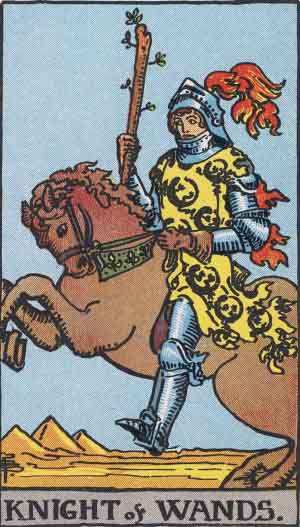
Hermes: “You wanna talk to her?
Orpheus: “Yes?”
Hermes: “Go on!….Orpheus?”
Orpheus: “Yes?”
Hermes: “Don’t come on too strong”
(to Eurydice)
Orpheus: “Come home with me!”
Hermes gives Orpheus that piece of advice, because he knows that Orpheus is “all about the wands energy,” and understands that Orpheus is a little “much” for some.
But I really like remembering that this is a story Hermes has had to “sing again and again” so, he likes to add a little flair in the retelling of it. Like all those epic stories of our lives we like to tell, and find that little embellishments go a long way in making those stories compelling. Either way (and it can be both) that little detail just livens up the moment so much, I love it!
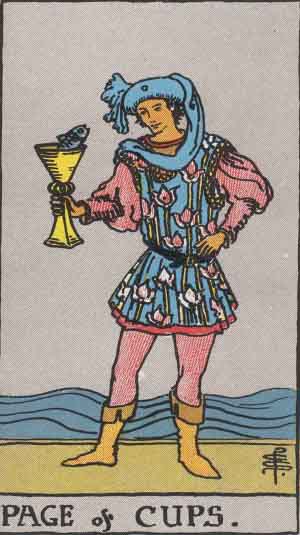
Eurydice: “Who are you?
Orpheus: “The man who’s gonna marry you! I’m Orpheus.”
Eurydice: (to Hermes) “Is he always like this? (Hermes: Yes) (Back to Orpheus) I am Eurydice”
Orpheus: “Your name is like a melody!”
Eurydice: “A singer! Is that what you are?”
Orpheus: “I also play the lyre”
Eurydice: “Oh, I liar and a player too! I’ve met too many men like you”
Orpheus: “Oh no, I am not like that!”
This is so much of that typical rom com scene in a bar, right? That super charismatic guy with his pickup line…but with Orpheus it is *OBVIOUS* that he is “not like that” because the whole exchange seems so heavy on earnestness and very light on the cockiness. I love Reeve Carney here, as the most earnest of all three Orpheus (Orphei??) among the three albums. (This track is only on the Broadway album). But yeah, it has that “Knight of Wands” energy (above) in proclaiming that he is going to marry her, but the earnestness of the Page of Cups.
He still clearly needs some assistance from Hermes, and is less driven (knights) by his emotion (cups) but is so curious and earnest to develop those romantic feelings, I am going to say he really is embodying both energies here.
Hermes: (to E) He’s not like any man you’ve met. (To Orpheus) Tell her what you’re working on.
Orpheus: “I am working on a song. It isn’t finished yet, but when it’s done and when I sing it, spring will come again.
Eurydice: “Come again?”
Orpheus: “Spring will come”
Eurydice: “When? I haven’t seen a spring or fall since, I can’t recall”
Again, I think it is cute how we see Hermes as the wingman/narrator, again perhaps it is one of those “they keep reliving this so many times, let’s just speed it up.”
I also just love the cleverness of how Orpheus and Eurydice share the lyrical line of “spring will come again, come again spring will come.” Orpheus is singing of a returning to the “natural” order of things, of cycles certainly, but specifically spring. And spring is, on a spiritual level, about transformation, about the hope that there will be new life and regeneration after that “long, dark, night of the soul” and also quite literally food growing on trees and such. And of course, we know from the previous song that Eurydice is mourning the collapse of climate, and hopes of this rebirth with her loose reference to “ain’t no spring or fall at all anymore” from the last song.
This moment is bringing some “3 of wands” and “3 of pentacles” energy. Orpheus is *embodying* the knight of wands and page of cups, but this song he is working on has such potential (wands), and knows it can restore balance on earth (pentacles) if only he can complete it!
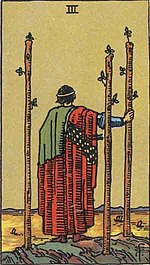
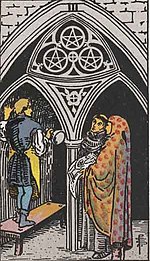
Orpheus: “That’s what I’m working on. A song to fix what’s wrong, take what’s broken make it whole. A song so beautiful, it brings the world back into tune, back into time, and all the flowers will bloom. When you become my wife!
Eurydice: “Oh he’s crazy! Why would I become his wife?
Hermes: “Maybe because he’ll make you feel alive…”
Eurydice: “Alive…that’s worth a lot. What else you got??”
Orpheus I believe here is encompassing “The World” in his universe, and “The Fool” in Eurydice’s. He has this hope, this knowing, this prophecy of how the world could be and his role in fixing it and making it whole again. He has done the work to know what needs to be done, and now just has to do the dang thing, demonstrating the cyclical nature of the major arcana from the World and back to The Fool. And Eurydice seems like she is intrigued by this Orpheus who claims to be able to restore the cycles of the world, and return spring. We have the budding romance of the 2 of cups in her playful engagement of “What else you got?”

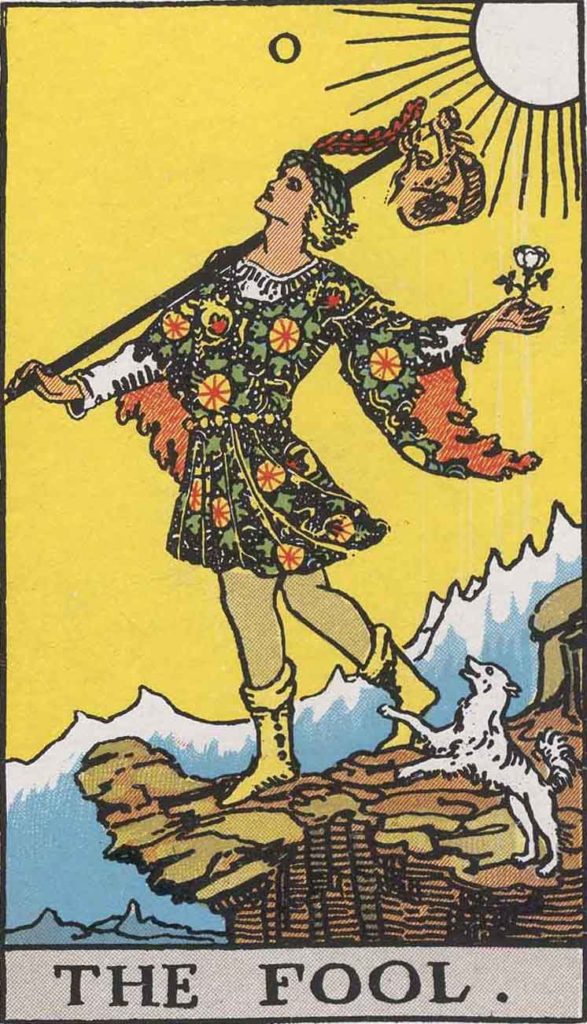
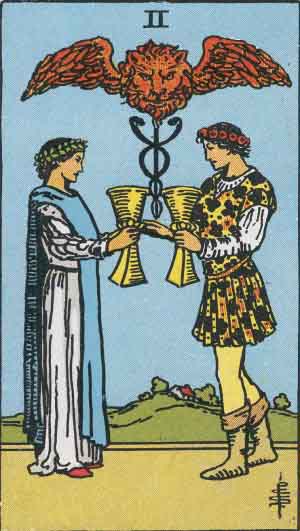
Personal Reflections on “Come Home With Me”
I am reflecting on just how true that reflexive “He’s crazy!” can be, how easy it is to disregard someone’s imagination of a better world and choosing to instantly negate it, pointing out how it would never work, the obstacles, etc.
The People’s Oracle defines liberation as “collective imagining,” and when we refuse an invitation to the collective imagining of what a better world could be, we are rejecting our own liberation. I am reminded of once in my college years when I was engaging in some anti-capitalism rant, (something about how it would be great to pay teachers a living wage and that CEOs, celebrities and athletes shouldn’t be earning so much more, pretty basic stuff, really…) I was written off disdainfully by one of my friends at the time for being “so naive.” This person was smart, and I felt small by their comment.
Are the dreamers naive when they imagine a better world?
Aare the negators naive for not being able to envision this collective liberation?
What is wrong with being “naive” anyway?
The essence of “the fool” in tarot is exactly that! The blank slate, that naivete, the beginning of that hero’s journey. Our naivete is not a problem if we just don’t know, unless we are also unwilling to learn. Naivete is not a problem if we are unable to see or hope for something better, unless we are unwilling to try.
Orpheus is embodying the “be the change you wish to see in the world,” the wisdom in seeing what could be, and the vulnerability in hoping that it is all actually possible. Like Eurydice, we want to be alive, to be a part birthing something better. And what is at stake if we don’t? (Spoiler alert: Nothing Changes).
One Comment